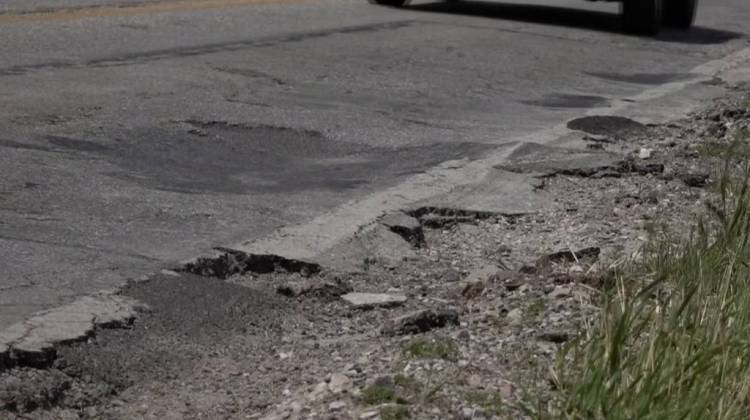
Crews tear down part of the West Calumet Housing Complex on April 2, 2018. Resident advocates say East Chicagoans were not only exposed to lead through the USS Lead contamination but also through lead pipes
Lauren Chapman/IPB News, FileU.S. Sen. Todd Young (R-Ind.) helped introduce a bill that would prevent lead in drinking water in low-income housing. It's called Get the Lead Out of Assisted Housing Act of 2018.
It would require the U.S. Department of Housing and Urban Development inspect lead pipes.
Young says HUD already oversees lead paint remediation in homes paid for with federal assistance.
"We thought that it would just be a natural fit to require grant recipients to also test for lead in drinking water," he says.
Like money for the HUD lead abatement grants, funding to cross-check for lead in drinking water would come from the department's Office of Lead Hazard Control and Healthy Homes or another branch of HUD. Other parts of the law would be paid for through appropriations.
Emily Coffey is a housing justice staff attorney at the Sargent Shriver National Center on Poverty Law in Chicago. The center represented residents living in the West Calumet Public Housing Complex in the USS Lead Superfund site in East Chicago.
Coffey says it's important that agencies look at all the ways a child can be exposed to lead in a home.
"And not just siloing out who is responsible for what and allowing agencies to point the finger at one another," she says.
Coffey says HUD usually defers cases of lead in drinking water to the Environmental Protection Agency.
The bill would also create a grant program to help communities address lead in drinking water in other public spaces, like daycare centers and schools.
Representatives from both parties helped introduce the legislation. Young says he's confident the bill will be signed into law in the coming months.
READ MORE: Demolition Begins At Contaminated East Chicago Public Housing Complex
Indiana Environmental reporting is supported by the Environmental Resilience Institute, an Indiana University Grand Challenge project developing Indiana-specific projections and informed responses to problems of environmental change.
 DONATE
DONATE










 Support WFYI. We can't do it without you.
Support WFYI. We can't do it without you.